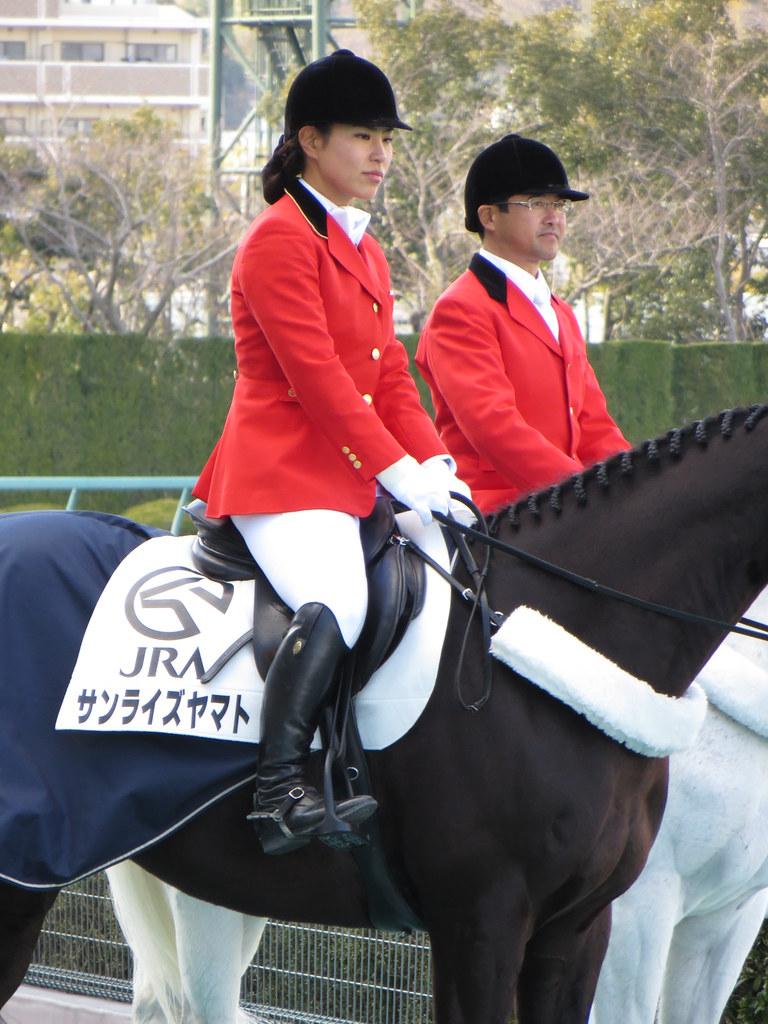Sartorial Gallop: The Evolution of Equestrian Fashion Through the Decades
From the bustling streets of ancient Rome to the grand spectacles of the English countryside, the world of equestrian fashion has pranced boldly through the annals of time. Galloping across the centuries with grace and elegance, this fascinating realm has witnessed an intricate dance between style and functionality, honoring both the noble steed and its rider. Embark on a journey through history as we explore the captivating evolution of equestrian fashion, delving deep into the tapestry of trends and iconic looks that have transformed this timeless pursuit. As the riding world continues to evolve, let us unravel the story that lies within the seams of each era, uncovering the intricate details that have molded equestrian attire and unveiling the voices of those who have influenced this sartorial gallop throughout the decades.
Introduction: From Functional Attire to Fashionable Statements: The Dynamic Journey of Equestrian Fashion
Embarking on a captivating journey through time, we delve into the fascinating world of equestrian fashion and witness its transformative evolution over the decades. From its humble beginnings as merely functional attire, equestrian fashion has seamlessly transitioned into a true expression of style, grace, and elegance. This sartorial gallop has not only mirrored societal changes but has also become a fashion statement that continues to captivate and inspire.
Traveling back to the early 20th century, we uncover a world where equestrian fashion served a practical purpose. Riders donned suits and tailored jackets for a fashionable yet functional appeal. However, as women’s participation in equestrian sports increased, so too did their desire to challenge traditional norms. Enter the iconic breeches and jodhpurs, which symbolized a new wave of freedom and empowerment for women riders. The incorporation of riding boots further emphasized the chic yet practical nature of equestrian fashion.
Fast forward to the mid-20th century, and we find ourselves amidst a transformative period for equestrian fashion. The influence of the glamorous equestrian world on mainstream fashion was undeniable. With icons like Audrey Hepburn and Grace Kelly embracing the equestrian style, a seamless blend of sophistication and casual elegance emerged. The inclusion of tailored jackets, high-waisted pants, and structured blouses became the epitome of timeless equestrian fashion. Rich textures and bold patterns also made their mark, enabling riders to make bold, fashionable statements while ensuring they were always ready to take the reins with confidence.
1. Riding in Style: Unveiling the Iconic Attire of the Victorian Era Riders
Sartorial Gallop: The Evolution of Equestrian Fashion Through the Decades
Step back in time and immerse yourself in the world of Victorian era riders, a time when style was just as important as the ride itself. The equestrian fashion of this iconic era showcased a unique blend of practicality, elegance, and sophistication. Let’s explore the evolution of equestrian fashion through the decades, starting with the Victorian era.
1830s - 1850s: The Elegant Riding Ensemble
- Corsets and waistcoats were a staple of women’s equestrian attire, emphasizing their hourglass figures while providing support during long rides.
- Men’s riding jackets were tailored to perfection, featuring high collars and fitted silhouettes that exuded confidence and poise.
- Top hats and bowler hats were commonly worn by both men and women, adding a touch of class to their equestrian looks.
1860s - 1880s: Military-Inspired Riding Outfits
Drawing inspiration from military attire, the equestrian fashion of this era took a bold turn.
| Women’s Attire | Men’s Attire |
|---|---|
| Buttoned-down bodices paired with high-collared riding jackets allowed women to achieve a disciplined and authoritative look. | Tailored frock coats, inspired by military uniforms, became a popular choice for men, combining functionality with a touch of grandeur. |
| Riding skirts with practical side slits made it easier for women to mount and dismount their horses with grace. | Breeches made from durable fabrics, paired with knee-high riding boots, were the go-to attire for men, providing both comfort and style. |
1890s – 1900s: Embracing Sporting Chic
- As horse riding became increasingly popular as a sport, equestrian fashion took on a more relaxed and sporty vibe.
- Women’s riding attire evolved into tailored jackets, paired with high-waisted jodhpurs, allowing for easy movement and flexibility.
- Men began sporting collared shirts with cravats, accompanied by relaxed-fitting riding breeches, emphasizing comfort without compromising style.
- Riding hats in this era became more practical, with straw boaters and fedora hats taking center stage on the equestrian fashion scene.
As the wheels of time continue to turn, equestrian fashion continues to evolve, reflecting both historical influences and contemporary trends. From the elegance of the Victorian era to the sporty chic of the early 20th century, riders throughout the ages have always made a statement with their attire. Join us on this sartorial journey through the decades, as we uncover the timeless style that accompanies the equestrian world.
2. Breaking Boundaries: The Progressive Transformation of Gender Norms in Equestrian Fashion
As the world of equestrian fashion gallops forward, one cannot ignore the significant shifts that have occurred in the realm of gender norms. Throughout the decades, equestrian apparel has undergone a remarkable transformation, breaking traditional boundaries and embracing a more inclusive and diverse approach.
Historically, equestrian fashion was predominantly tailored towards men, with rigid expectations of masculinity and functionality. However, as society evolved, so did the perception of gender roles. A notable turning point was the 1960s and 1970s, when the women’s liberation movement brought about a wave of change. Equestrian fashion became infused with a newfound sense of freedom and expression, challenging the norms and encouraging more women to actively participate in this competitive and graceful sport.
- Rise of Unisex Designs: In recent years, the industry has witnessed a surge in unisex equestrian fashion. Traditional gender-specific silhouettes have given way to more versatile designs that transcend traditional connotations. Blazers with clean lines and tailored fit, paired with breeches or jodhpurs, are now equally adored by both men and women, encouraging a sense of equality and unity.
- Breaking Stereotypes: Gone are the days when pink was solely associated with girls and blue with boys. The reshaping of gender norms in equestrian fashion has shattered these stereotypes, allowing for a vibrant range of colors to flourish. Women confidently sport masculine-inspired riding boots, while men embrace the elegance of delicate pastels in their attire. The lines have blurred, enabling individuals to freely express their personal style without limitations.
- Technical Innovations: Alongside the societal revolution, technological advancements have further revolutionized equestrian fashion. The deliberate focus on functionality and comfort has paved the way for practical enhancements such as moisture-wicking fabrics, ergonomic designs, and stretch materials. These innovations have transcended gender, creating a symbiotic relationship between fashion and performance, making equestrian apparel suitable for all riders regardless of their gender identity.
Equestrian fashion has undoubtedly undergone a remarkable journey wherein gender norms and traditional boundaries have been gracefully shattered. The progressive transformation witnessed in recent decades signifies a more inclusive and fluid approach to clothing, allowing riders to embrace their individuality while partaking in the timeless elegance of equestrianism.
3. Tailored for Performance: Revolutionizing Riding Apparel in the Modern Age
Sartorial Gallop: The Evolution of Equestrian Fashion Through the Decades
Equestrian fashion has come a long way since its humble beginnings, and the evolution of riding apparel has been nothing short of remarkable. In today’s modern age, the demand for high-performance equestrian clothing has revolutionized the industry, and riders now have access to a wide range of tailored options that not only enhance their performance but also make a bold fashion statement.
With advancements in fabric technology and cutting-edge design, the modern equestrian is spoiled for choice when it comes to riding apparel that is both functional and fashionable. This new breed of riding gear offers unparalleled comfort, durability, and style, ensuring that every rider feels confident and empowered in the saddle.
From breathable riding breeches that provide optimum flexibility and moisture-wicking properties to high-tech riding helmets that prioritize safety without compromising on aesthetics, equestrian fashion has truly entered a new era. Riders now have access to a plethora of options that cater to their specific needs, allowing them to perform at their best while looking effortlessly stylish. The advent of innovative materials, such as moisture-wicking fabrics and lightweight, breathable textiles, has revolutionized the way riders experience comfort and functionality.
4. Fashion Forward: Embracing Innovation and Sustainability in Equestrian Fashion Today
Sartorial Gallop: The Evolution of Equestrian Fashion Through the Decades
As times change, so does equestrian fashion. The horseback riders of today still embody the elegance and sophistication of centuries past, yet their attire now reflects a modern sensibility that embraces both innovation and sustainability. In this section, we will explore the evolution of equestrian fashion, delving into how it has evolved to meet the needs and desires of the contemporary rider.
Innovation: In recent years, equestrian fashion has seen a surge in innovative designs and materials that enhance both comfort and performance. Riders can now enjoy the benefits of high-tech fabrics that wick away moisture, regulate body temperature, and provide optimum flexibility. From breeches crafted with four-way stretch and reinforced knee patches for superior grip to moisture-wicking show shirts that keep riders cool under pressure, the modern equestrian wardrobe is designed to enhance the rider’s experience while still maintaining a stylish aesthetic.
Sustainability: Alongside innovation, sustainability has become a key focus in the equestrian fashion industry. More and more brands are committed to reducing their environmental impact by using eco-friendly materials and ethical production practices. Some companies have even taken the extra step to create clothing made from recycled materials or plant-based fibers like bamboo or organic cotton. By embracing sustainability, riders can feel good about their fashion choices while contributing to a greener future.
| Decade | Trend | Iconic Piece |
|---|---|---|
| 1950s | Pleated skirts for ladies | Riding capes |
| 1970s | Hippie-inspired embroidered details | Wide-brimmed hats |
| 1990s | Tight-fitting jodhpurs | Black field boots |
The future of equestrian fashion holds exciting possibilities. As technology continues to advance, we can expect to see even more innovative fabrics and designs that enhance both performance and style. Moreover, sustainability will remain an essential factor, with brands placing increasing emphasis on eco-friendly practices. Whether you are a professional rider or simply enjoy the equestrian lifestyle, embracing the fashion-forward nature of contemporary equestrian attire ensures you stay on-trend while preserving timeless elegance.
5. From the Track to the Runway: Exploring Influences of Equestrian Style in Contemporary Fashion
Sartorial Gallop: The Evolution of Equestrian Fashion Through the Decades
As we venture into the world of fashion, it’s fascinating to see how equestrian style has influenced contemporary trends. From the track to the runway, equestrian fashion has galloped through the decades, leaving its distinctive mark on the industry. Let’s take a stylish journey through time, exploring the evolution of this sartorial trend that showcases elegance, functionality, and a timeless allure.
1920s:
In the roaring twenties, the equestrian silhouette took center stage. Ladies exchanged voluminous skirts for tailored riding breeches, borrowing elements from the traditional jodhpurs worn on horseback. High-waisted, wide-leg pants made a statement with their clean lines and were often paired with smartly tailored jackets and ties. The trend embraced classic colors such as black, navy, and crisp white, exuding an air of sophistication and freedom.
1950s:
The 1950s witnessed a delightful fusion of equestrian aesthetics with femininity. Equestrian-inspired riding coats, complete with velvet collars and brass buttons, were all the rage. These coats added a touch of elegance and formed an integral part of fashionable ensembles. Ladies complemented their outfits with stylish knee-high boots, exuding grace and a sense of adventure. The equestrian fashion of this era effortlessly combined practicality with glamour.
1990s:
The equestrian trend made a striking comeback in the 1990s, infusing a modern twist into timeless classics. Designers sought inspiration from the vibrant world of horse racing, incorporating bold and vibrant colors. Sleek and figure-hugging silhouettes, combined with sporty details like contrast stripe accents and harness-inspired details, created a contemporary equestrian look. Accompanied by statement belts and knee-high boots, this decade celebrated equestrian fashion as a symbol of individuality and power.
As the hooves of time continue their relentless gallop, the equestrian fashion industry confidently strides alongside it, adapting and evolving through the passing decades. From the elegant silhouettes of the Victorian era to the sleek and sporty designs of the modern world, the evolution of equestrian fashion is a testament to the enduring harmony between the horse and its rider.
Delving deep into the annals of history, we have witnessed a captivating transformation in equestrian attire. The prim and proper corsets of the 19th century gave way to the more practical and comfortable garments of the early 20th century, reflecting the winds of change blowing across society. With each era, equestrian fashion seamlessly merged functionality and style, beautifully blending tradition with innovation.
In the swinging 60s, we saw the influence of the counterculture movement, as eccentric patterns and vibrant colors found their way onto riding jackets and jodhpurs, showcasing a newfound freedom of expression. The rebellious spirit of the 70s witnessed a surge in equestrian fashion with bell-bottom pants offsetting the structured elegance of tailored blazers, as riders sought to break free from the constraints of convention.
Moving into the present, we find equestrian fashion embracing cutting-edge technology and materials to optimize performance without compromising on style. The sleek lines of today’s form-fitting jackets and breeches are not only fashionable but also cater to the needs of the modern rider, providing the desired flexibility and comfort required for optimum performance.
However, through all these transformations, there remains an unmistakable thread of continuity that weaves through the fabric of equestrian fashion. It is the deep respect and appreciation for tradition, a constant reminder of the roots that ground us. In the composure of a rider atop their steed, there is a timeless elegance that cannot be replaced by passing trends.
As we bid adieu to this fascinating journey through the corridors of equestrian fashion, we stand in awe of the ebb and flow of time that has left an indelible mark on this noble industry. From the humble beginnings of buttoned-up collars to the bold designs of today’s fashion runways, equestrian fashion stands as a testament to the artistry, skill, and unwavering passion of those who have devoted themselves to the pursuit of both fashion and horsemanship.
Let us continue to honor this remarkable heritage, cherishing the stories told by the outfits that have graced countless arenas and country estates. For in the world of equestrian fashion, true style is not just what you wear – it is the love, dedication, and unbreakable bond between horse and rider that will always remain in vogue, no matter how the winds of fashion may change.



